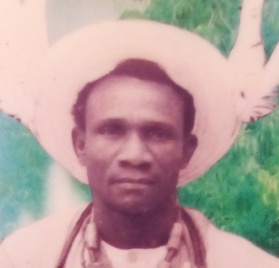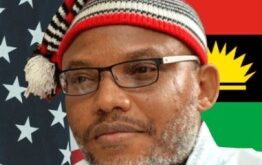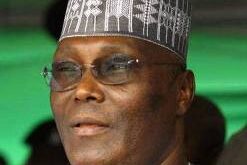By Young Erhiurhoro
It has become a norm, a custom and a cultural practice for the children, family members and Igbe members to celebrate late Uku Sunday Efedudu’s exit and passage from this planet earth every year since 2007.
Here again, the 2021 memorial anniversary of this great Igbe leader has come for celebration in a grand style and memorable way. It’s an occasion to remember and reflect on the life and times of this great religious leader.
Though we have written much about him and the Igbe religion generally, but words won’t be enough to describe the life of this pious man in totality. The description of his impeccable character, centred on the peculiar virtues of kindness, generosity, philanthropy, love, humility and peaceful disposition, is always anew in our hearts and at every moment when such debate comes up for discussion.
Late Uku Sunday Efedudu died fifteen years ago on October 20, 2006 at the ripe age of 93 years old. He was a full indigene of Unenurhie community, Evwreni kingdom in Ughelli North Local Government Area of Delta State.
According to the biography presented by his eldest son, Uku Simon Efedudu, who now occupies the Igbe throne, during his burial, though the actual date of birth wasn’t known to the children, he was named ‘Sunday’ by a church priest in the community because he was born on a Sunday.
Initially, late Uku Sunday Efedudu began his life as a practicing Christian until he was infected with a deadly sickness which was beyond all medications, both orthodox and traditional. He was taken to all known traditional medicine practitioners, witch doctors and herbalists within and outside the village but to no avail. There was no cure or solution to his unbearable predicament.
Happily enough, as the Almighty God would have it, a family member now introduced him to an Igbe religious home at Ugono-Orogun in Orogun kingdom in Ughelli North Local Government Area of Delta State, an Igbe religious home owned by one Uku Igugu, one of the first disciples of Ubiesha. It was there that late Uku Sunday Efedudu got his salvation and divine healing from the deadly sickness that took him to faraway lands in search of cure.
After his initiation as a full-fledged Igbe member, he was made to confess all the sins he committed, as is their normal practice and belief. From there, he began to faithfully practice the norms, rules and regulations of the Igbe religion as laid down by its founder, late Prophet Ubiesha Etarakpo of Kokori Inland.
Late Uku Sunday Efedudu gradually as a result of his dedication and commitment to the tenets of the religion rose from the lowest cadre of the Igbe religion known as ‘Igbe-Ighele,’ through ‘Olori’ to the highest position of ‘Uku.’ He was ordained ‘Uku’ by Uku Supreme Ibodje Ubiesha, the son of the founder who later took over as the general leader of the Igbe religion worldwide. This divine ordination was done in 1975 at his home town of Unenurhie with much fanfare.
Thereafter, he became an independent leader of his own Igbe denomination as is also the practice with the Church in Nigeria today. But his full allegiance and loyalty was always to the founder who was the equivalent of an archbishop of a church. Late Uku Sunday Efedudu always paid yearly homage to the Igbe headquarters at Kokori Inland especially during the annual Igbe festivals.
However, as ‘Uku,’ he had the religious right to initiate new members into his own Igbe denomination and also to promote or ordain dedicated and committed members to the rank of ‘Olori,’ which was equivalent of a parish priest or assistant pastor in a church. In the same way, he could also ordain female members as ‘Oni-Igbe.’ Some of these ‘Ilori’ and ‘Ini-Igbe’ had their own denominations or branches as the case may be, and they were all under the control and leadership of late Uku Sunday Efedudu as their religious leader. They also paid yearly homage to him whenever he was organizing his annual Igbe festival.
More importantly, as the Igbe religious group began to blossom as a result of its miraculous feats and the potency of the holy chalk to heal all kinds of diseases and ailments, the glory therefore knew no bound. In no distant time, the news of this Igbe religious home spread to far and distant places like wide fire.
This again motivated him to seek for registration of his Igbe religious home with the Corporate Affairs Commission (CAC) in Abuja. In 2002, the Igbe religious group was formerly registered with the name, ‘Igbe Orhe Ofuafo Oghene Healing Home Inc,’ which means in English, ‘Igbe Holy Chalk of God Healing Home Inc.’
True to the registered name, the Igbe religious home was a haven and a solution centre to so many people in distress or those facing different life threatening challenges. It was a home to the homeless, a miracle centre where testimonies were being shared at every worship days by members.
His fame grew far and wide. His Igbe branches became uncountable in the 80s and 90s especially in nearby communities like Evwreni, Uwheru, Patani, Bomadi, Iyede, Olomoro, Enhwe etc. In the same way too, he had branches and countless members in cities like Ughelli, Warri, Sapele, Oleh, Benin, Lagos and other cities across the country.
In fact, during the Igbe annual festivals, the host community, Unenurhie was like a little London jam-packed with a lot of visitors and great personalities. He usually celebrated two festivals every year. The first one which came up on March 23 was the big convention or festival and usually drew a lot of population in attendance, while the second one was the festival of harvest. This one was held around September 10th every year.
The glory too was also splendid. During these festivals, his compound was a beehive of different religious activities. For instance, the big convention was usually held for seven days. All through the seven days, there were different activities occupying each day with different testimonies following, while the festival of the harvest was for five days. It was moments for celebration of achievements, sharing testimonies of divine healings, celebrating abundant blessings and paying homage to the ‘Ovie-Orhe’ and ‘Ose’ as the Igbe adherents fondly called him.
Igbe Religion in Nigeria:
I want to conclude this tribute to our late father by saying a little about the Igbe religion in Nigeria.
As I said at the onset of this discourse, I have truly written much on the Igbe religion as a cultural analyst and a media practitioner, but more research still needs to be done by both university scholars and students of Religion Studies, History, Philosophy and African Studies on the Igbe religion, especially as a subject or course of study.
Historically, the Igbe religion as defined by scholars of Religion Studies is a neolithic African traditional religion founded many years ago by an Urhobo man called Prophet Ubiesha Etarakpo. This man was from Kokori Inland, Agbon Kingdom in Ethiope East Local Government Area of Delta State.
The Igbe religion as a work of comparative analysis is synonymous to the Christian religion in some of its belief systems.
First, the Igbe religion believes in the salvation of the soul. This is done by confession of sins from time to time, whether at home or in the worship or service hall by members. They believe that every man is a sinner before God, and needs to confess his sins to have a cordial relationship with God.
Secondly, they believe in the existence of the Almighty God, whom they call in their local parlance ‘Orise,’ as the creator of man, the heavens and earth and every other creature. Though, from historical research, the name ‘Orise’ was coined from Itsekiri and Bini languages and it means the Almighty God.
Thirdly, the Igbe religion believes in the reincarnation of the soul which otherwise, most Christian teachings term resurrection from death. In this case, Igbe adherents strongly believe that, there is life after death. That is, life is a continuous process in many climes or planets other than this very earth.
Fourthly, Igbe religion believes that sin can bring condemnation or punishment to the sinner. They equally believe that once you confess your sins, Orise always have mercy and will forgive the sinner. Again, the Igbe also believe on holiness and purity of both the body and soul of members. This is why they symbolically use the white cloth (Ukpoyibo) as the approved clothing or uniform during divine services to depict this aspect of purity and holiness in their lives.
Lastly, Igbe religion believes in prophecies as divine messages from God for the freedom and salvation of mankind. In order to achieve this spiritual role in Igbe religion, there are prophets and prophetesses in the religion that can tell you the divine message from Orise especially during worship or service periods.
Conclusively, the personality of this tribute meant much to me and to so many people that knew him when he was alive. Late Uku Sunday Efedudu was a role model, a mentor, a teacher, an instructor and a religious leader per excellence. In fact, he was a man I can’t forget in my life and in my total sojourn here on earth.
I grew up under his tutelage and care like so many children of my age he equally nurtured and trained in their childhood in his palatial compound. Though he wasn’t my biological father, he cared for me more than my biological father in every respect and ramifications. He mentored me with his words of wisdom and in the act of sacrificial leadership.
Today, the late Uku Sunday Efedudu like a good orange tree had produced so many branches that are producing blossomed fruits in their different careers in various parts of the world.
He was a man that made no segregation between his biological children and his foster children. He was reverend and honoured like a king by his Unenurhie people. As one of the community leaders said about him during this occasion, “We may have called him a pagan because he didn’t go to the church, but he was a man I can adjudge as a righteous man, even more righteous than some pastors in the town. He was even righteous in all his life than most of us that are Christians. He was a father and leader to the entire community in his time. In fact, he was a man we, both Christians and pagans need to emulate in terms of humility, generosity and righteousness of life. In the same way too, we leaders should practice his kind of leadership which centred on sacrifice and stewardship to the followership or the led.”
In fact, how much can I say about this great man? He left lasting legacies and sweet memories in our hearts in the sand of time which can’t be forgotten easily. I consider this as the only price I can continuously pay yearly in respect and honour to this rare breed of homo-sapien. Ose, continue to rest in perfect peace.
Young Erhiurhoro;Kjc is a reporter and a member of the Urhobo Historical Society.
 PH Mundial – Port Harcourt Online Newspaper News Across The Region
PH Mundial – Port Harcourt Online Newspaper News Across The Region





